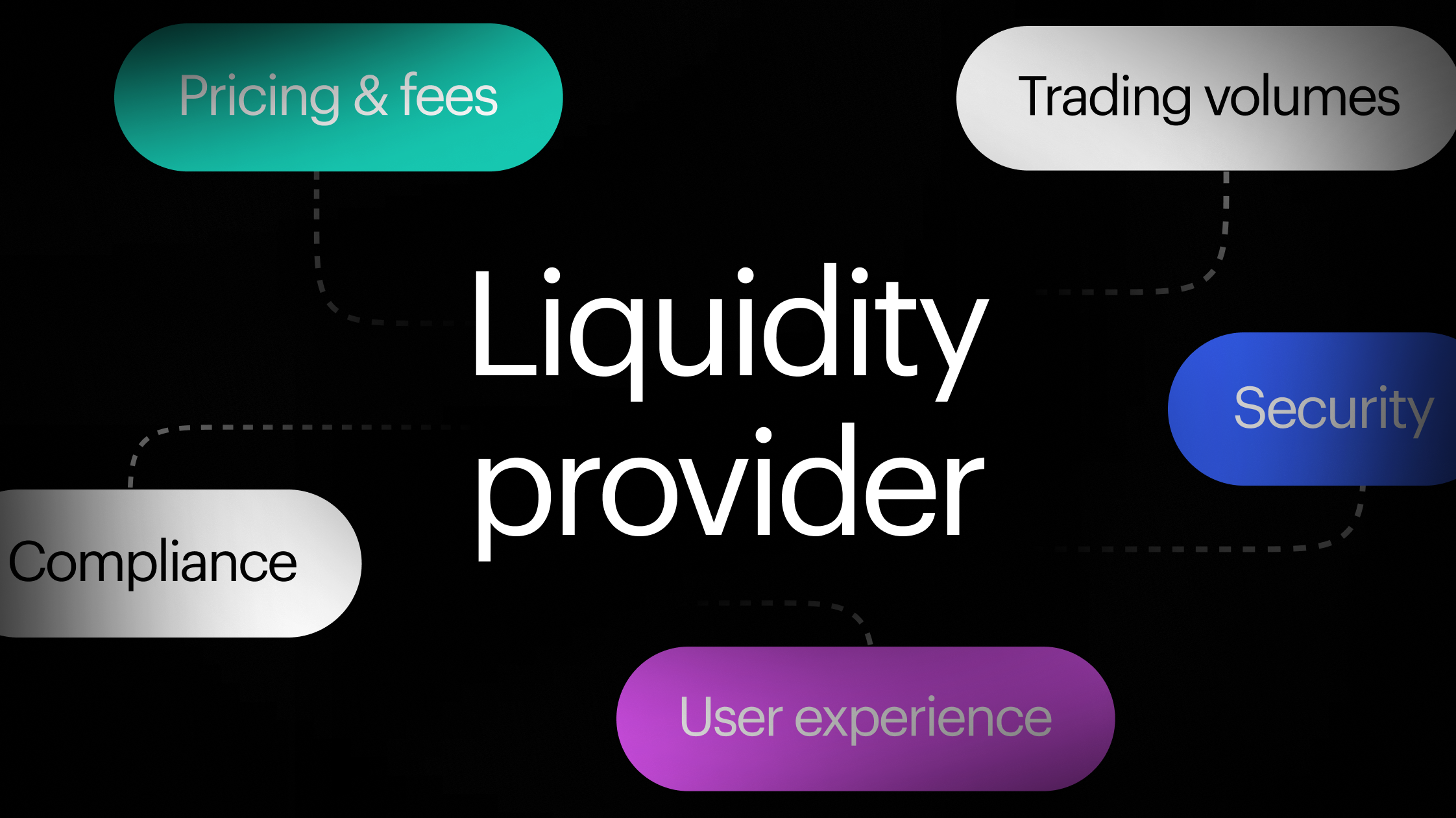
TL;DR
-
Bybit hit by largest crypto hack in history – North Korea’s Lazarus Group reportedly stole over $1.5B from the exchange. Bybit has since restored 50% of its Ether reserves with help from major industry players.
-
BitGo launches institutional OTC trading desk – After operating in stealth, BitGo now offers spot, derivatives, and lending services, having already processed billions in trading volume. An IPO may be on the horizon.
-
Ethereum ETFs surge as Bitcoin ETFs see outflows – Ether spot ETFs attracted $393M in February, while Bitcoin ETFs lost $376M. The upcoming Pectra upgrade could further boost investor confidence.
-
Franklin Templeton pushes for a Solana ETF with staking – The firm seeks SEC approval for a Solana ETF that generates staking rewards, signaling growing institutional interest in yield-generating crypto products.
-
Potential U.S. gold audit may drive Bitcoin inflows – Speculation over Fort Knox reserves could increase scrutiny on gold-backed assets, potentially strengthening Bitcoin’s store-of-value narrative.

Bybit Hit by Largest Crypto Hack in History, Recovers Half of Ether Reserves in Days
Bybit was hacked in the largest security breach in crypto history, with North Korea’s Lazarus Group behind the attack that resulted in losses of over $1.5 billion. The exploit happened on Feb 21, targeting liquid-staked Ether, Mantle Staked ETH (mETH) and various ERC-20 tokens. ZachXBT and Arkham Intelligence, through forensic analysis, found the attackers by tracing test transactions and wallet connections to Lazarus Group – a group notorious for previous high profile crypto hacks.
Bybit moved fast to reassure users, with CEO Ben Zhou saying all client withdrawals will be processed as normal. The exchange also sought emergency liquidity solutions, reaching out to partners to bridge the gap. Arkham Intelligence announced a 50,000 ARKM (approx. $32,000) bounty to anyone who can find more information on the attackers.
Despite the big losses, Bybit recovered nearly 50% of their pre-hack Ether reserves in 2 days. Data from CryptoQuant shows Bybit’s ETH holdings dropped from 439,000 ETH to 61,000 ETH post-hack and has since rebounded to over 201,600 ETH. A big factor in this recovery was Bybit’s $295 million OTC purchase of 106,498 ETH and emergency liquidity support from key industry players including Binance (50,000 ETH), Bitget (40,000 ETH) and Du Jun, co-founder of HTX Group (10,000 ETH).
Bybit also processed over 350,000 withdrawal requests in 10 hours and completed 99.9% of them. The exchange’s quick response and market support have stabilized the platform and minimized the fallout from the hack.
This is now the largest hack in crypto history and has raised again the concern of cybersecurity in the industry especially state-backed hacking groups like Lazarus. As Bybit continues to recover, the broader crypto ecosystem is reminded again of the need for more security and vigilance against advanced cyber threats.
Read more
BitGo Expands Institutional Offerings with Crypto OTC Trading Desk
BitGo has officially launched an over-the-counter (OTC) trading desk for institutional clients, adding to their growing list of financial services. The platform was in stealth mode since early 2024 and has already processed billions in trading volume and-built a lending book of over $150 million.
The new OTC desk offers 24/7 trading access to over 250 digital assets, spot and derivatives markets. It also provides lending services and yield-generating products, making it a full-service institutional trading solution. This coincides with increasing institutional demand as Finery Markets reported a 106% increase in crypto OTC volumes in 2024 – driven mainly by the upcoming US presidential election and the growing interest in spot crypto exchange-traded products.
“Having seen many market cycles and understanding what works and what doesn’t, we’ve been quietly building a proper institutional crypto trading desk, and now we’re confident we offer what other brokers can't,” said Matt Ballensweig, BitGo’s Managing Director and Head of Trading. “Our integrated OTC offering gives clients the ability to execute with a full-service desk across spot, derivatives, and lending, all while their assets remain protected in qualified custody until the time of settlement.”
In addition to the OTC launch, BitGo is reportedly planning an initial public offering (IPO) in the second half of 2025, according to Bloomberg. The company is in talks with potential advisors but no decision has been made yet. This would follow their $100 million funding round in 2023 which valued the company at $1.75 billion – backed by major players including Goldman Sachs, DRW Holdings, Redpoint Ventures and Valor Equity Partners.
BitGo’s growth is a sign of the increasing institutionalization of the crypto industry, with secure custody, liquidity solutions and advanced trading infrastructure becoming top priorities for big investors. As the market matures, the demand for seamless institution-grade trading solutions will grow and BitGo will be well-positioned to benefit from it.
Read more
Ether ETFs See $393M in Inflows as Investors Shift Focus from Bitcoin
Ethereum is gaining traction with institutional investors as spot Ether ETFs in the US saw $393 million in inflows this month – almost 7x January’s numbers. In contrast, spot Bitcoin ETFs saw $376 million outflows, indicating a shift in traditional finance sentiment towards Ethereum.
The interest in Ether ETFs is partly driven by strategic trading approaches such as carry trades where investors long spot ETFs and short ETH futures. Despite earlier market volatility that pushed Ether’s price to almost $2,000, it has since rebounded to $2,600 – $2,800. However, challenges remain with Ethereum transaction fees decreasing by 70% indicating weaker on-chain demand.
Looking ahead, Ethereum’s upcoming Pectra upgrade on April 8 could boost investor confidence. The upgrade is expected to bring faster transactions and improved staking mechanisms which could drive more adoption. Also, the Ethereum Foundation’s recent $120 million allocation to DeFi projects suggests growing institutional support with some analysts predicting a 30% chance of Ether reaching $3,000 by end of Q1.
Read more
Franklin Templeton Files to Launch Solana ETF with Staking
Franklin Templeton has filed with the US Securities and Exchange Commission (SEC) to launch a Solana exchange-traded fund (ETF) that includes staking. The proposed Franklin Solana ETF will list on the Cboe BZX Exchange with Coinbase Custody Trust Company as the custodian. If approved, the fund will generate staking rewards in Solana tokens which may be treated as income.
The filing comes as regulatory sentiment shifts with multiple firms vying for a Solana ETF since the SEC approved Bitcoin and Ethereum ETFs. The agency’s crypto task force has recently met with Jito Labs and Multicoin Capital to discuss staking in ETFs. Meanwhile, the New York Stock Exchange and Cboe BZX are pushing for staking in Ethereum ETFs indicating growing institutional demand.Industry insiders believe staking in ETFs is a matter of when not if. “I think staking will be allowed for all proof-of-stake assets inside an ETF wrapper—it’s just a matter of when,” said Bloomberg ETF analyst James Seyffart. Franklin Templeton’s move is a sign of growing confidence in regulatory approval of yield-generating crypto investment products.
Read more
U.S. Gold Audit Could Drive Bitcoin Inflows, Says Copper Research Head
A potential audit of U.S. gold reserves under a second Trump administration could increase scrutiny on gold-backed assets and shift investor interest to Bitcoin, according to Copper Head of Research Fadi Aboualfa. If gold ETFs struggle to verify full backing, they may trade at a discount and trigger a global liquidity drain and reallocations into digital assets. “A time of increased scrutiny on underlying gold stocks could see interesting knock-on effects for digital assets,” Aboualfa said, highlighting Bitcoin’s transparency advantage.
Some see a direct correlation between gold scrutiny and Bitcoin inflows while others are cautious. RedStone COO Marcin Kazmierczak said Bitcoin’s store-of-value narrative could strengthen but added traditional institutions still view gold and Bitcoin through different risk profiles. Nansen Research Analyst Nicolai Sondergaard said if discrepancies in Fort Knox reserves were found, Bitcoin’s built-in scarcity and on-chain transparency would make it an attractive hedge against fiat uncertainty.
Talks around a Bitcoin strategic reserve (SBR) have also emerged. While a formal U.S. Treasury shift to Bitcoin is unlikely, Aboualfa pointed to a possible first step: halting the sale of seized Bitcoin where there are no identifiable victims. This, he said, could be the first step towards an SBR, building a national Bitcoin reserve from already seized assets.
Read more


























